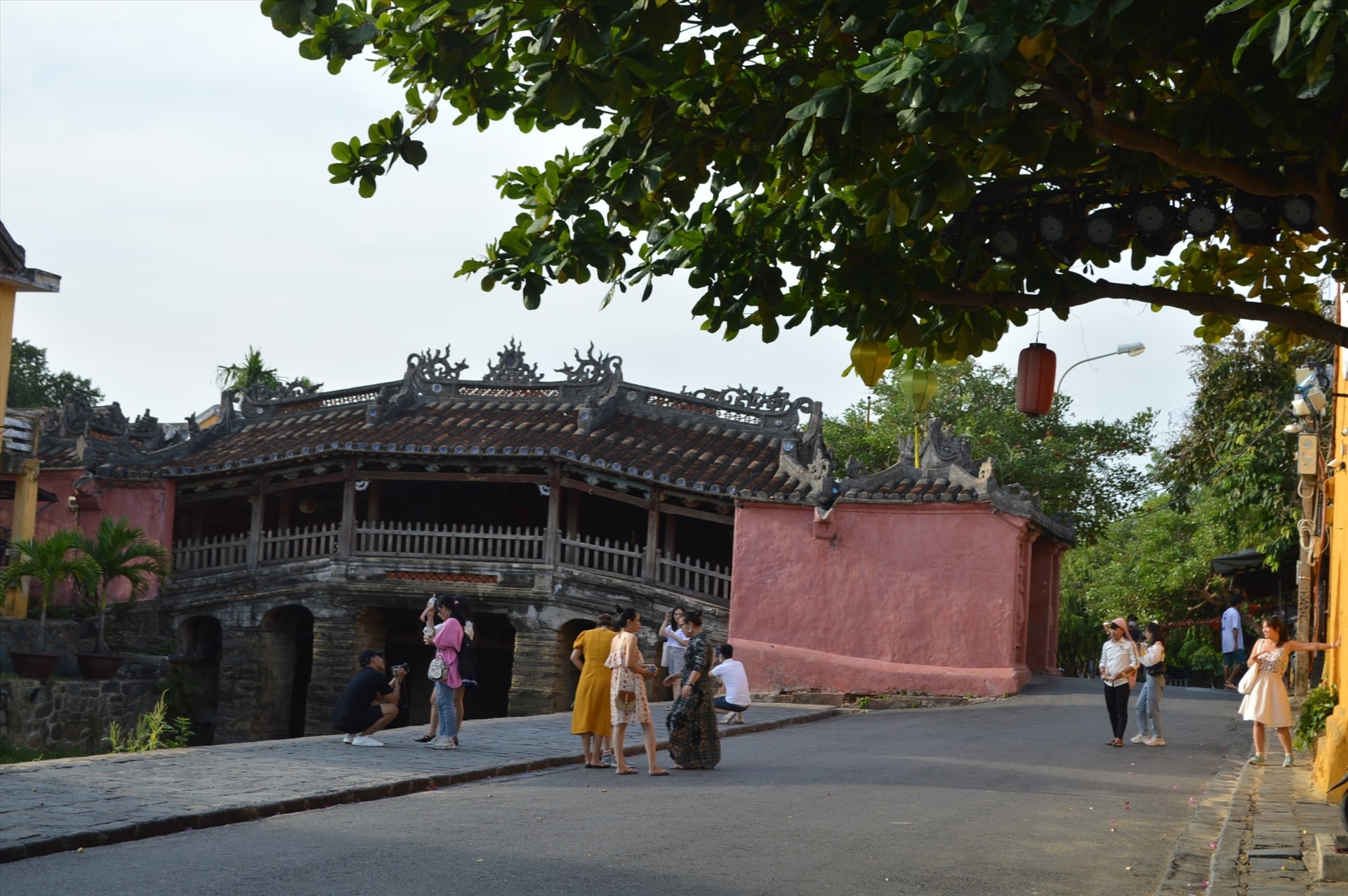National heritage of Japanese Covered Bridge under repair
(QNO) - The project on preservation and restoration of Japanese Covered Bridge (Chua Cau) has been approved by the Quang Nam provincial People’s Committee.

The 400-year-old bridge in Hoi An, Japanese Covered Bridge or Chùa Cầu in Vietnamese, is a symbol of architectural heritage in Hoi An ancient town.
Japanese Covered Bridge was built in around the late 16th and early 17th centuries by Japanese merchants at that time, hence its name including Japanese.
The bridge is 20.4 metres long, 13 metres wide, 5.7 metres high.
Its Ding- letter (Chinese Vietnamese) structure consists of a covered bridge in the South connecting to the ancient quarter, a temple to worship Zhenwudadi- representing the winter season in the North.
Both the bridge and the temple are structured in wood with its yin- yang tiled roof, wooden floor on 4 stone buttresses crossing a canal.
Japanese Covered Bridge was recognised as a national heritage in 1990 and appeared on the 20,000-dong note.
